
Milley: Russia has lost ‘strategically, operationally and tactically’

Russia has lost “strategically, operationally” one year after its invasion of Ukraine, top US general says
From CNN’s Haley Britzky
A little less than a year since Moscow began its invasion of Ukraine, Russia has “lost strategically, operationally, and tactically,” Chairman of the Joint Chiefs Gen. Mark Milley said from Brussels on Tuesday.
“Putin thought he could defeat Ukraine quickly, fracture the NATO alliance, and act with impunity. He was wrong,” the top US general said. “Ukraine remains free, they remain independent. NATO and this coalition has never been stronger, and Russia is now a global pariah. And the world remains inspired by Ukrainian bravery and resilience. In short, Russia has lost — they’ve lost strategically, operationally, and tactically, and they are paying an enormous price on the battlefield.”
Milley and US Defense Secretary Lloyd Austin are in Brussels for the ninth meeting of the Ukraine Defense Contact Group, to discuss ongoing support for Ukraine as it fights against Russia.
Milley said on Tuesday that until Putin “ends his war of choice,” the international community “will continue to support Ukraine with the equipment and the capabilities it needs to defend itself.”
Ukraine expected to conduct offensive against Russia in the spring, US defense secretary says
From CNN’s Haley Britzky
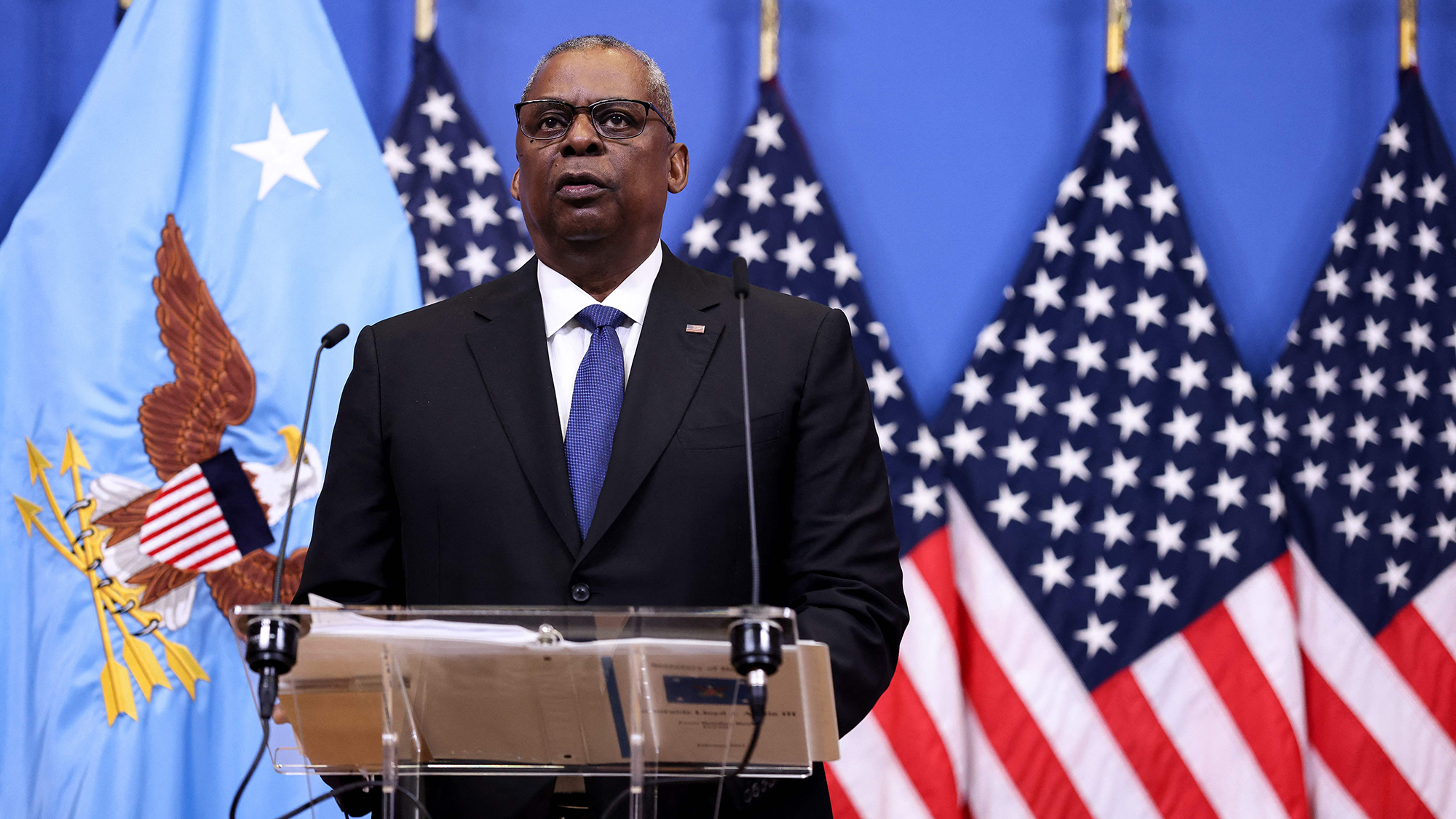
US Defense Secretary Lloyd Austin said he expects to see Ukraine conduct an offensive in the spring.
“What Ukraine wants to do at the first possible moment is to establish or create momentum and establish conditions on the battlefield that continue to be in its favor,” he said in a news conference in Brussels on Tuesday.
“And so we expect to see them conduct an offensive sometime in the spring and because of that we are, we all of the partners in in the Ukraine Defense Contact Group, have been working hard to ensure that they have the armored capability, the fires, the sustainment to be able to be effective in creating the effects on the battlefield that they want to create,” he said.
Austin and Chairman of the Joint Chiefs Gen. Mark Milley are in Brussels for the ninth meeting of the Ukraine Defense Contact Group, which focuses on providing support to Ukraine in its war against Russia. Austin is also participating in a meeting with NATO’s defense ministers. The one-year anniversary of Russia’s invasion is just over a week away.
Dwindling ammo stockpiles worry NATO allies while they try to keep Ukraine’s troops firing
From CNN’s Luke McGee
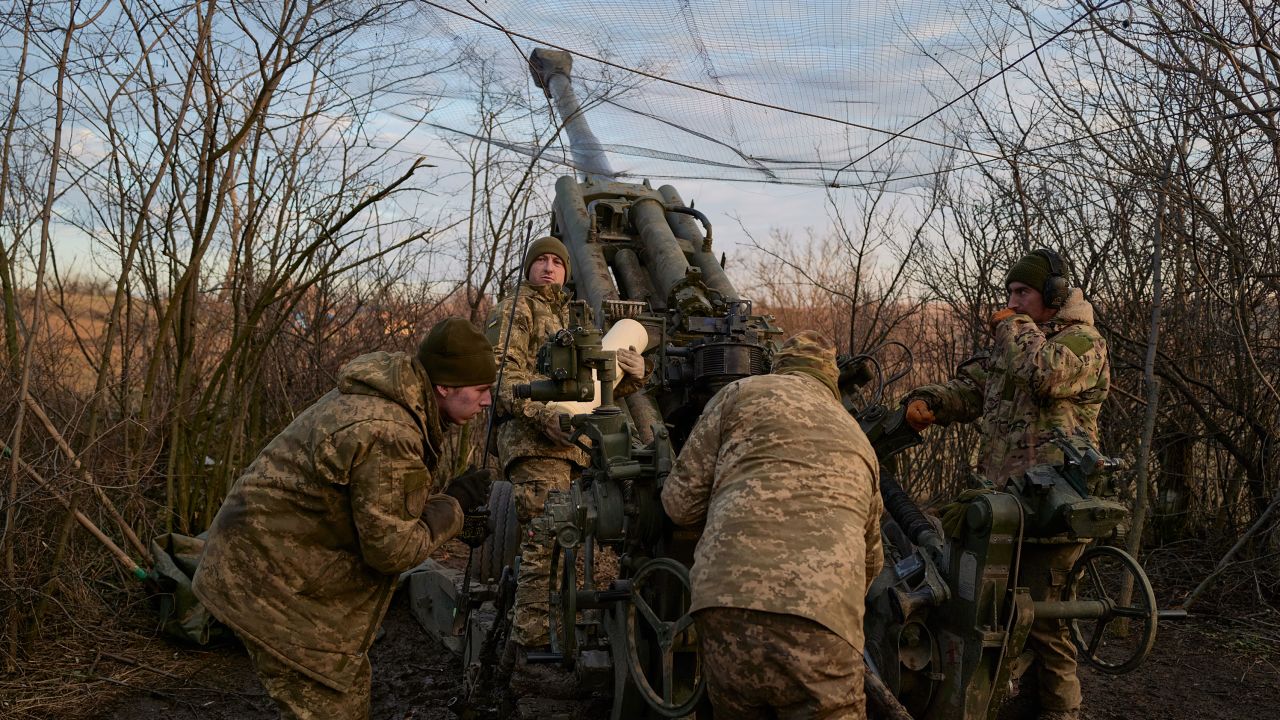
Since Russia began its invasion of Ukraine, one of the biggest surprises has been the willingness with which Western countries have handed over increasingly sophisticated military equipment for Ukrainian use, especially considering the the fact that these donations have left European militaries’ stock cupboards looking rather bare, according to defense officials and experts.
It’s hard to get exact numbers on exactly what weapons individual nations currently hold in their arsenals due to the sensitivity of the information. But multiple European defense and security sources have told CNN that there are serious concerns at just how much of Europe’s ammunition has been used on the battlefield and not replaced. Even the biggest supplier of weapons to Ukraine and the world’s top military exporter, the United States, is having trouble keeping up with the demand, as CNN reported late last year.
On Monday night, NATO Secretary General Jens Stoltenberg told reporters ahead of a meeting of alliance officials that “the current rate of Ukraine’s ammunition expenditure is many times higher than our current rate of production – this puts our defense industries under strain.”
How we got here: Decades of budget cuts across Europe have led to policy makers keeping a deliberately low stock on the assumption that there would not be a land war that could swallow up ammunition at similar levels to World War I or II, experts said.
“The combination of no immediate threat and the financial pressures on European governments over the past couple of decades led to a conspiracy of dressing the shop window while letting the stockroom empty out,” said Nick Witney, senior policy fellow at the European Council on Foreign Relations.
The picture European defense officials paint is a grim one. No one wants publicly to say that supporting Ukraine has caused problems, but the ammo crunch is coming and it will take major intervention to put right.
Of course, the vast majority of people involved in European defense at any serious level stand firmly by the support they have provided to Ukraine.
The looming ammunition crisis has, however, revealed that policymaking is often based on convenient assumptions of the best-case scenario. After all, taking no action, in the short-term at least, is often cheaper than taking action.
Brad Lendon contributed reporting for this story.
Bakhmut won’t be captured “anytime soon,” Russia’s Wagner mercenary group says
From CNN’s Mick Krever in London.
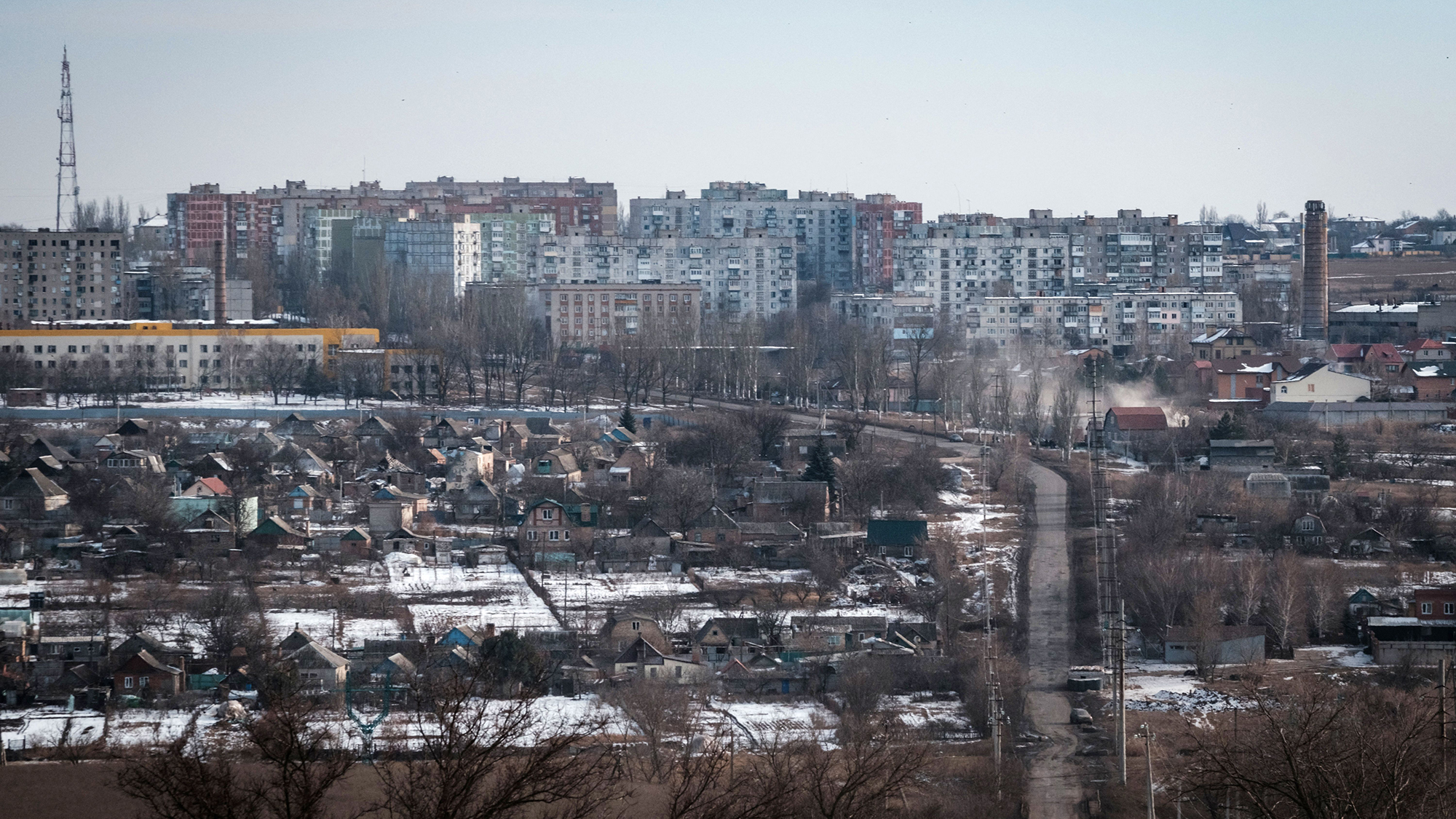
The head of Russia’s Wagner private military company on Tuesday warned that the capture of the eastern Ukrainian city of Bakhmut was far from imminent.
“Bakhmut will not be taken tomorrow, because there is heavy resistance and grinding, the meat grinder is working,” Yevgeniy Prigozhin said in a statement distributed on a Wagner Telegram channel. “For the meat grinder to work properly, it is impossible to suddenly start festivities. There won’t be any festivities anytime soon.”
Despite months of intense battle, Wagner and Russian forces have failed to capture Bakhmut, though they are slowly pushing towards encircling the city.
And yet, Prigozhin cautioned that that was anything but imminent. He was responding to a question about whether Wagner forces had captured a small portion of northern Bakhmut.
“I don’t understand where this nonsense comes from,” he said. “In all directions, the enemy is becoming more active, pulling up more and more new reserves. Daily 300 to 500 new fighters approach Bakhmut in all directions. Artillery fire intensifies with each day.”
“To date, heavy fighting is going on in the north. There are no prerequisites for encircling the enemy in the northern regions. Attack is carried out house by house, square meter by square meter. We are seeing the full-blown military engagement. It is just not clear where all these stories about some encirclement and something else come from.”
Some more context: On Sunday, Wagner claimed to have captured a small settlement north of Bakhmut, Krasna Hora. Ukrainian officials have disputed that claim. In announcing the claimed capture, Prigozhin said that “within a radius of 50 km, give or take, there are only PMC [private military company] Wagner fighters who will take Bakhmut.”
That statement caught the attention of Sergey Markov, a pro-Kremlin military blogger.
“Official reports continuously emphasise that Artemovsk [the Soviet-era name for Bakhmut] is being taken by ‘assault groups of volunteers’ with the combat support from the Russian Army missile and aviation units,” Markov wrote. “This indicates that although the public squabble between the small but successful Wagner and not yet so successful but very large Ministry of Defense ended on the orders of the authorities, contradictions remain.”
Some degree of power struggle, Markov said, is normal.
“This is a struggle for resources such as powers, tasks, money, staff and glory for victories. Up to a certain point, this is quite a healthy competition. But only up to a certain point,” he said.
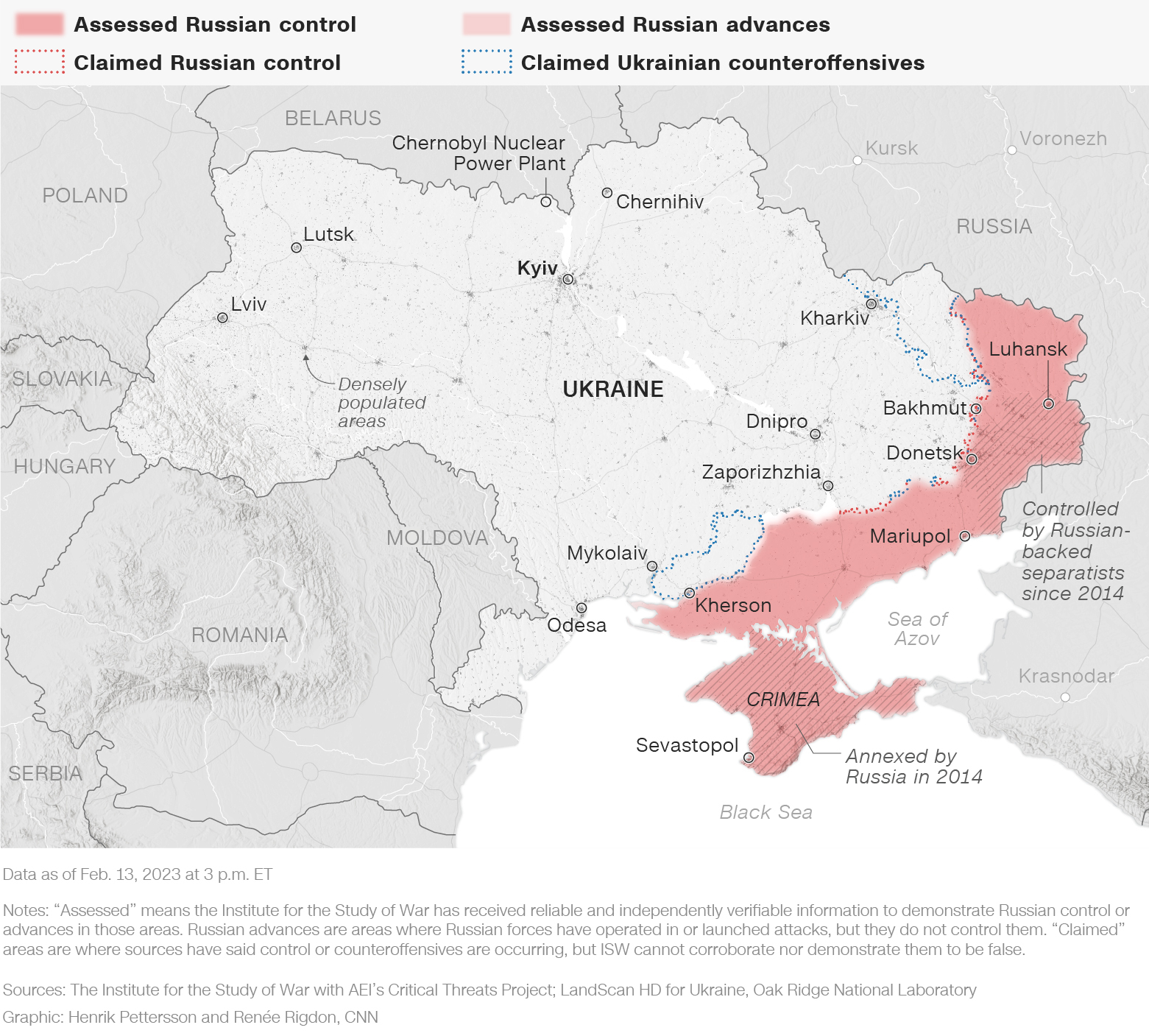
With translation by Olena Mankovska
Russian frigate docks in South Africa ahead of joint naval drills with China and Russia
From CNN’s Eve Brennan in London, Steph Busari in Lagos and Ghazi Balkiz in Johannesburg
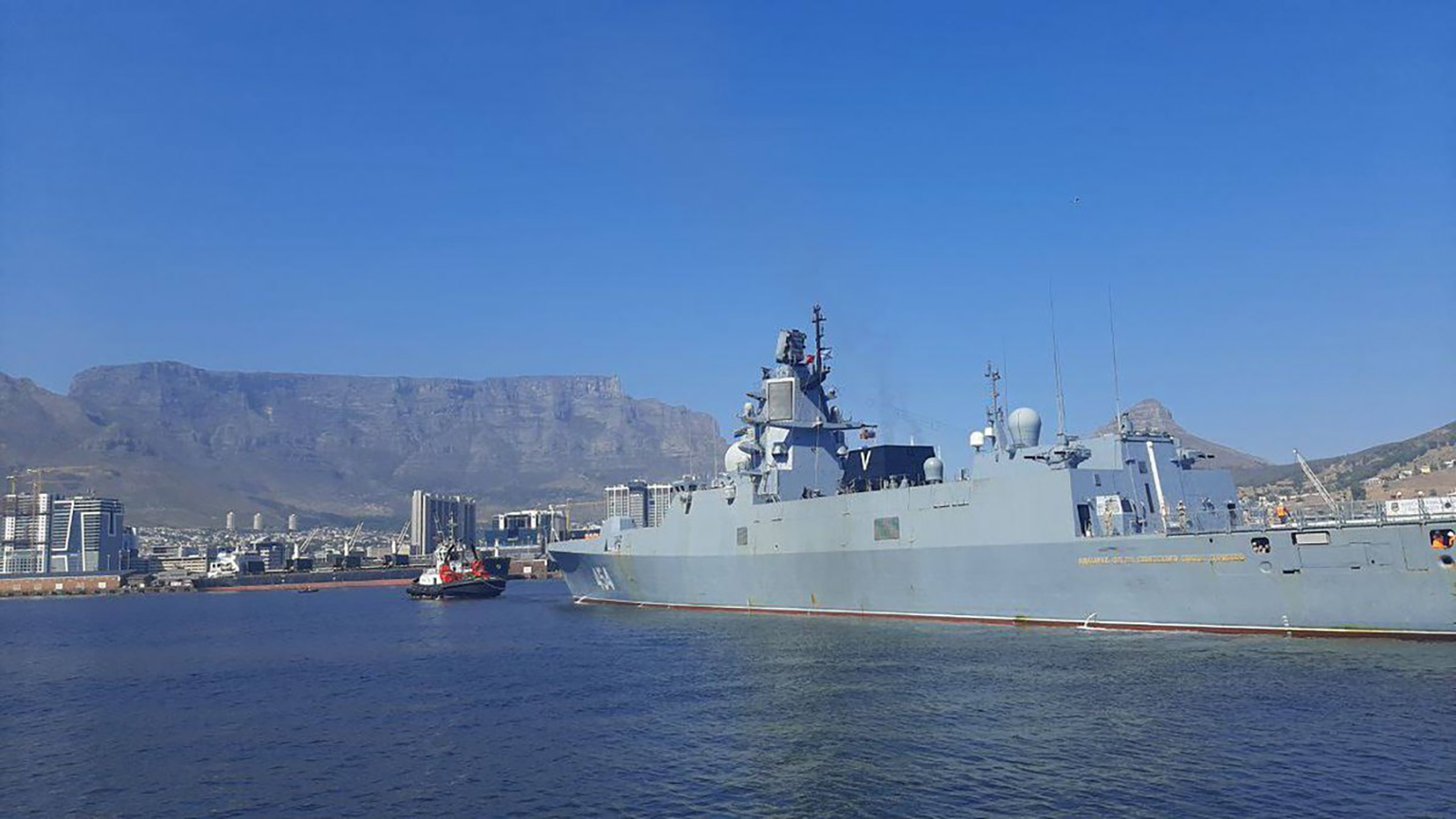
Russia’s Admiral Gorshkov frigate, armed with Zircon hypersonic missiles, has docked in Cape Town, South Africa, ahead of joint military drills with South Africa, Russia and China, Cape Town’s Russian Consulate said on Monday.
“The battleship arrived in the Mother City on its way to Durban where it will take part in joint [South Africa]-[China]-[Russia] naval drills scheduled for February 17-27,” the consulate said on Twitter.
Why it matters: The exercises come as Russia nears the first anniversary of its invasion of Ukraine, and it is also an opportunity for Moscow to show it is not entirely isolated on the world stage, despite widespread international condemnation of the invasion.
In January, Russian Foreign Minister Sergei Lavrov and his South African counterpart Naledi Pandor defended the naval drills after they held talks in Pretoria during Lavrov’s first visit to South Africa since the invasion of Ukraine.
Earlier this month, Russian state-owned news agency TASS quoted a source close to Russia’s defense industry, saying the frigate “will perform a training launch of a Tsirkon (Zircon) hypersonic missile during a joint exercise with South African and Chinese navies.”
CNN’s Radina Gigova contributed reporting to this post.
Norway will send 8 Leopard 2 tanks to Ukraine, defense minister says
From CNN’s Eve Brennan and James Frater in London
Norway will send eight Leopard 2 tanks to Ukraine, Norway’s defense minister said Tuesday.
“Norway will donate eight tanks and up to four support vehicles to Ukraine. In addition, we have earmarked funds for ammunition and spare parts,” Defense Minister Bjørn Arild Gram said in a news release.
“Several allied countries have also done the same,” Prime Minister Jonas Gahr Støre said in the news release, adding that it is “more crucial than ever to support Ukraine’s defensive battle.”
According to Gram, Norway will also contribute to the education and training of Ukrainian tank crews in Poland together with other allied countries.
“This donation is an important and much needed contribution,” Gram said.
“In addition, Norway will offer NOK 250 million ($24.7 million) for ammunition and spare parts for Leopard 2 tanks as a grant to the EU’s Ukraine fund, the European Peace Facility,” Gram added.
Gram said that the aim of Norway’s military support to Ukraine is to enable the country to defend itself against Russia’s attack.
“The country has an acute, extensive and lasting need for international support. Norway has made, and will continue to make, significant contributions to Ukraine in the years to come,” Gram said.
The announcement comes a day after Norway’s prime minister spoke with the Ukrainian President Volodymyr Zelensky discussing “further cooperation.” Zelensky on Monday thanked Støre for the substantial five-year aid package that is being prepared for approval in Norway to support Ukraine.
CNN’s Arnaud Siad, Mick Krever and Jo Shelley contributed to this post.
Moldova’s airspace reopens after temporary closure, following allegations of Russian attempts to destabilize the country
From CNN’s Cristiana Moisescu, Tim Lister and Chris Liakos
Moldovan airspace has reopened following a temporary closure earlier Tuesday.
The country’s Civil Aviation Authority said that the airspace had shut “in order to ensure the safety and security of civil aviation,” but had since reopened. The authority said it would provide further details later today
Earlier Tuesday, the country’s national carrier Air Moldova announced the temporary closure of Moldovan airspace in a Facebook post.
“Today’s schedule will undergo changes,” the airline said without providing further details or any explanation for the closure. CNN has contacted Air Moldova for further information.
Some context: On Monday, Moldova’s President Maia Sandu accused Russia of planning to use “saboteurs who have undergone military training and are disguised as civilians” to destabilize the country, echoing claims made a few days earlier by Ukrainian President Volodymyr Zelensky.
“In the past few days, there have been discussions in our society about the security of our country,” Sandu said in an address to the citizens of Moldova, published on the presidential website.
Russia’s foreign ministry on Tuesday rejected the accusations as “unfounded and unsubstantiated.”
It’s mid-afternoon in Kyiv. Here’s what you need to know
From CNN staff
Russian forces are preparing for an assault on the Luhansk region in order to “sell” a victory to the public, according to a local Ukrainian official.
Meanwhile, Germany is set to ramp up ammunition production following a call from NATO Secretary General Jens Stoltenberg.
“We are seeing the start” of new Russian offensive already, Stoltenberg said at a Monday news conference in Brussels, ahead of a NATO defense ministers taking place today.
Here are the latest headlines:
- NATO chief says Kyiv needs weapons over fighter jets: Stoltenberg said sending fighter jets to Ukraine is “not the most urgent issue” right now. Instead, the most “urgent need” is for ammunition, spare parts and maintenance for artillery systems, he told reporters Tuesday.
- Chaotic scenes in Donetsk: Ukrainian drones have captured successive failed Russian assaults and resultant Russian casualties in the Donetsk region, eastern Ukraine. One video shows a tank running into a minefield and exploding, followed by an infantry fighting vehicle that suffers the same fate.
- Russia targeting Luhansk region in order to “sell” military victory: The head of the Luhansk region military administration has said Moscow wants to “sell” a victory to the Russian people by conquering what is the smallest de-occupied territory in Ukraine. This task “seems the easiest for the Russian occupation troops,” Serhiy Hayday said.
- Ukrainian soldiers begin training on Leopard 2 tanks in Poland: Pictures show Polish President Andrzej Duda and Defense Minister Mariusz Blaszczak visiting Ukrainian soldiers in training at the 10th Armored Cavalry Brigade in Świętoszów, Poland, on Monday.
- Moldova accuses Russia of destabilization plot: Moldova’s President Maia Sandu has accused Russia of planning to use “saboteurs” to destabilize the former Soviet republic, echoing a claim made days earlier by Ukrainian President Volodymyr Zelensky.
- Germany to produce more ammunition: Germany is to increase ammunition production in light of Russia’s ramped-up offensive in Ukraine, according to Defense Minister Boris Pistorius.
- Russia listed as tax haven: The European Union has added Russia to its list of “non-cooperative jurisdictions for tax purposes,” the council of the EU announced Tuesday.
Wagner chief admits to founding firm sanctioned by US over alleged election interference
From CNN’s Mick Krever and Anna Chernova
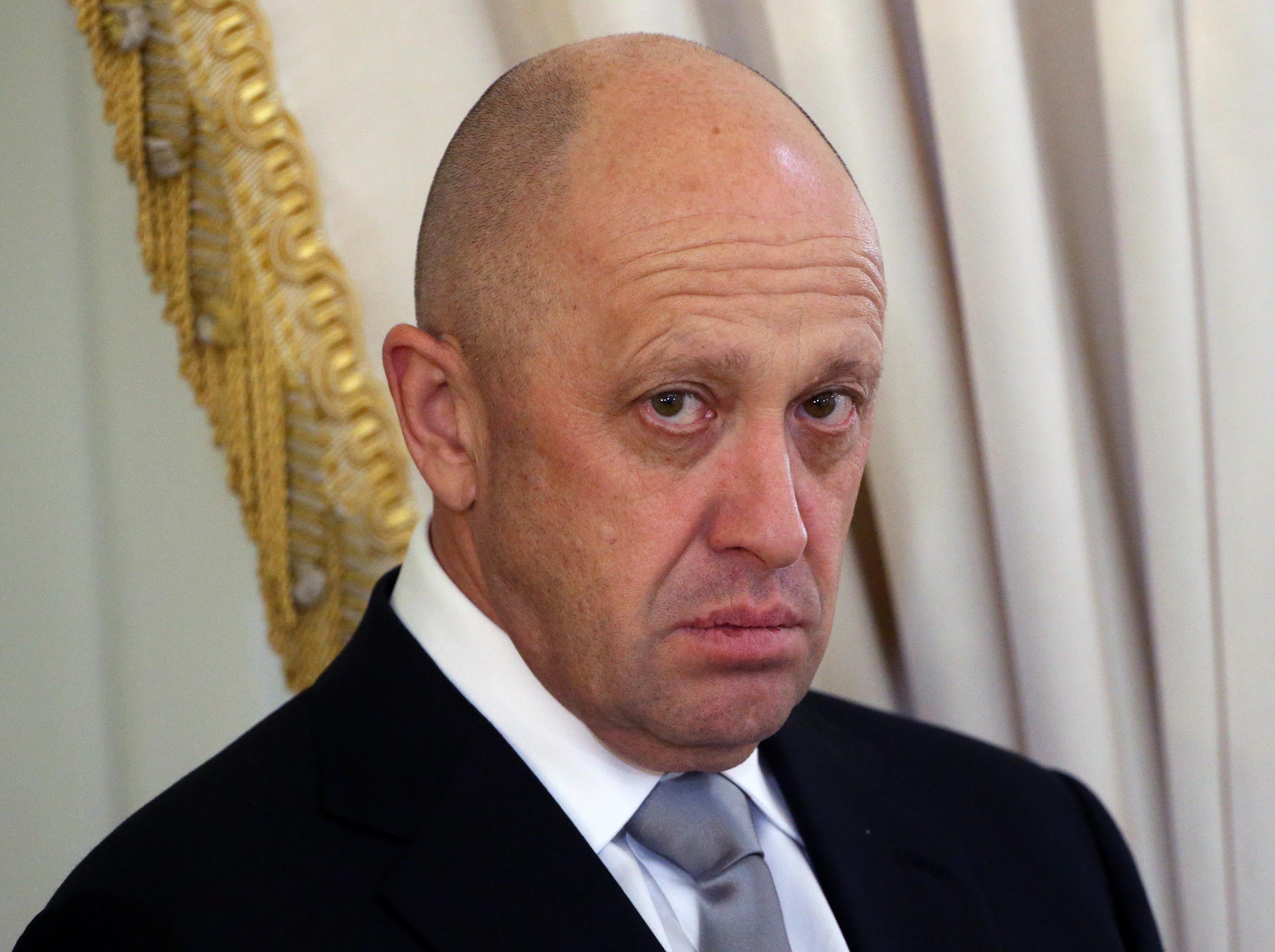
Yevgeniy Prigozhin, the head of Russia’s Wagner private military company, has admitted to founding the Internet Research Agency (IRA), which the US government has sanctioned for allegedly interfering in its elections.
On Tuesday a Wagner Telegram channel published a statement from Prigozhin, asking him to react to the suggestion that he was the founder of the IRA.
“I react with pleasure,” Prigozhin said in the statement. “I’ve never just been the financier of the Internet Research Agency. I invented it, I created it, I managed it for a long time. It was founded to protect the Russian information space from boorish aggressive propaganda of anti-Russian narrative from the West.”
In 2018, the US Treasury Department sanctioned the IRA, accusing it of having “created and managed a vast number of fake online personas that posed as legitimate U.S. persons to include grassroots organizations, interest groups, and a state political party on social media.”
“Through this activity, the IRA posted thousands of ads that reached millions of people online. The IRA also organized and coordinated political rallies during the run-up to the 2016 election, all while hiding its Russian identity,” said the Treasury Department.
“Further, the IRA unlawfully utilized personally identifiable information from U.S. persons to open financial accounts to help fund IRA operations.”
Source: https://www.cnn.com/europe/live-news/russia-ukraine-war-news-2-14-23/h_b4edf4b7b5c3e900908e0a12354b705d


















